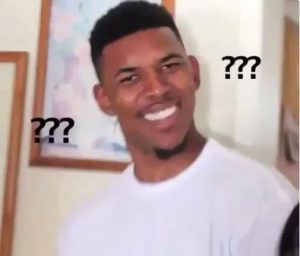To Search or Not to Search?
Facts: An anonymous tip was given to the police that a resident in North Walnut Avenue, Tucson, Arizona was distributing drugs. Acting on this anonymous tip, officers Griffith and Reed went to the house where Rodney Gant answered the door. Gant identified himself to the officers and told them the owner of the house was gone but would return later that day. Griffith and Reed left the house and checked police records. They found Gant had an outstanding warrant for driving with a suspended license. Later that evening, the two officers accompanied by a third went back to the house to restart their search. Upon returning, the officers saw a man in the back of the house who eventually was arrested for giving the police a false name, and a woman in a parked car who was arrested for the possession of drug paraphernalia. The man and the woman were both then placed in the back of two separate police cars. At the same time this was occurring, Gant pulled up. Officer Griffith called out Gant and they walked toward each other. The two men met about 10-12 feet away from Gant’s car where Officer Griffith immediately placed Grant under arrest for the suspended license violation. Officer Griffith called for backup since the two other suspects were secured in the only two police cars available at the time. Two other police officers arrived and and they locked Gant in the back of their car. After Gant was secured the two officers who were called searched his car where they found a gun and bag of cocaine which was in the pocket of a jacket in the back seat. Gant was charged of both driving with a suspended license and drug violations.
Outcome: Gant’s attorneys claimed that the police conducted a warrantless search which violated the Fourth Amendment, therefore the evidence should be suppressed. The state claimed that the passengers side seat could be searched without a warrant. The judge agreed with the state and allowed the evidence to be used and Gant was sentenced to three years in prison. The Arizona Supreme Court reviewed this decision and reversed it.
Legal question: Does the warrantless search of a suspects vehicle after they have been arrested and secured in a police vehicle violate the Forth Amendment’s search and seizure clause?

Holding: Yes
Justice Stevens Opinion: Justice Stevens uses precedent in his argument. Justice Stevens states, “Searches conducted outside the judicial process, without prior approval by judge or magistrate, are per se unreasonable under the Fourth Amendment – Subject to only a few expectations established and well-delineated exceptions.” Kats v. United States 1967. Among the few exceptions to the warrant requirement is a search incident to a lawful arrest. This exception came into place for the protection of the arresting officer. This exception was derived from Chimel v, California 1969 which held that a search after an arrest has been made may only include the “arrestee’s persons area within immediate control.” This area means the area in which he may be able to gain possession of a weapon or destroy evidence. Therefore, if there is no possibility that and arrestee could reach in the area officers seek to search, then the rule does not apply. New York v. Belton Is where the Supreme Court first applied the Chimel case to an automobile. In this case, a police officer stopped a car that was speeding where becton was the driver of a car of four people. Upon taking leal action, the officer smelled the odor of marijuana and saw an envelope on the ground labeled Supergold – A term the suspect used for marijuana. The officer had probable cause and ordered the men out of the car, separated them on different sides, and without arresting them, searched the car without a warrant. During the search, he found a coat in the back seat that had cocaine in it. This case held that when an officer arrests “the occupant of an automobile, he may, as a contemporaneous incident of that arrest, search the passenger component of the automobile” New York v. Belton.

The Arizona Supreme Court concluded that the search of Gant’s car was unreasonable. It does not uphold the Chimel exception because Gant did not have access to the car at the time. He was secured in the back of the police car. It also does not uphold the Belton exception because the circumstances were much different. In the Belton case, there was a lone officer searching the car of four unsecured arrestees. In Gants case, the vice police officers outnumbered the three arrestees who have been handcuffed and secured. Also, there was not enough probable cause to search Gant’s car as there was in Belton’s case. The officer in the Belton case had enough probable cause to search his car because he was arrested for a drug offense. In Gant’s case, he was arrested for a suspended license. The officer could not reasonably have believed that evidence for the offense Gant has been arrested for might have been found in the car. The Supreme Court concluded “Police may search a vehicle incident to a recent occupant’s arrest only if the arrestee is within the reaching distance of the passenger compartment at the time of the search or its reasonable to believe the vehicle contains evidence of the offense of arrest. When these justifications are absent, a search of and arrestee’s vehicle will be unreasonable unless police obtain a warrant or show that another exception to the warrant requirement applies” (The Rights of The Criminally Accused, 466). The Gant case did not uphold these exceptions therefore it was an unreasonable search.
My opinion: I agree with the opinion of the court. However, I believe the officer did have probable cause to believe that there was something in the car he can use as evidence. As stated previously, Gant was arrested for driving with a suspended license and the anonymous tip stated there might have been drugs being distributed from the house. Why would he have reason to do this if there was nothing in the car in which he might have been transporting back and fourth to some specific place? I believe the officer did have enough probable evidence, but I also highly agree with the decision because simply because Gant was handcuffed and secured in the back of a police vehicle there was no reason for the officer to go any further.